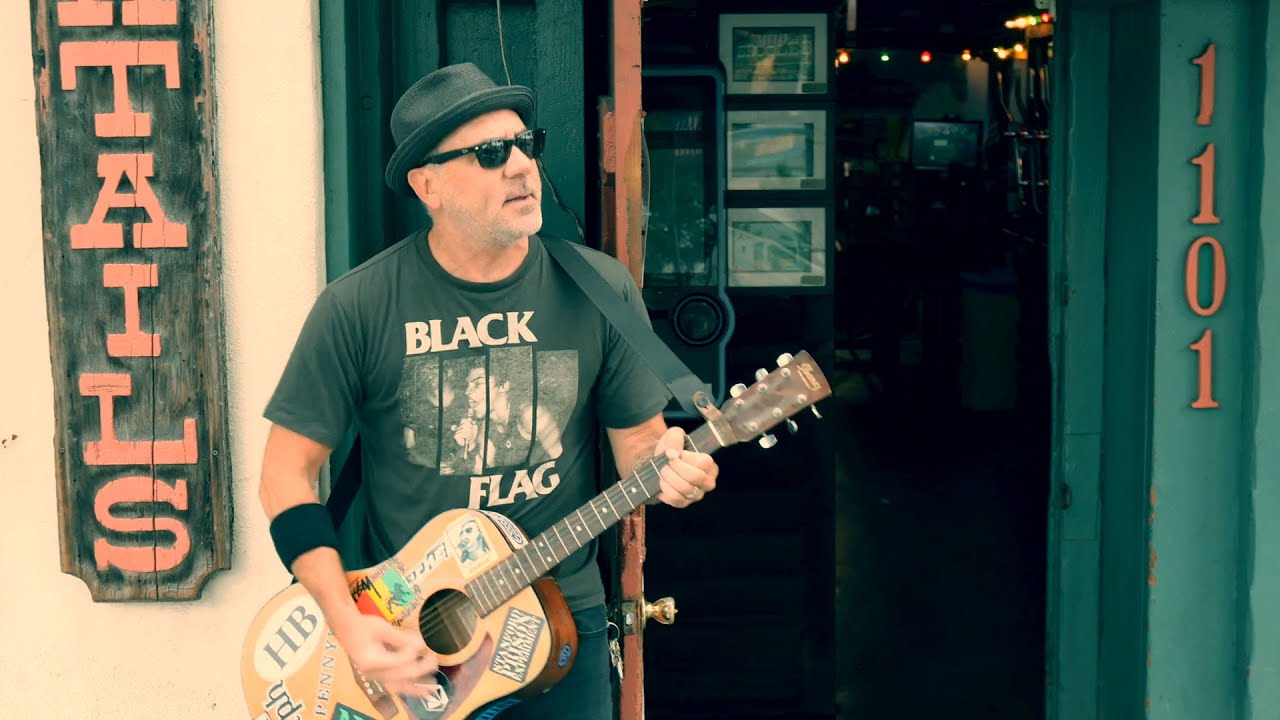Unlocking the Punk Rock Ethos: The Story of Jim Lindberg
1 year ago

Unlocking the Punk Rock Ethos: The Story of Jim Lindberg
In the world of punk rock, few figures have managed to capture and express the raw essence of the genre as effectively as Jim Lindberg, frontman of the legendary punk band Pennywise. With his deep-rooted passion for music, resonant voice, and a no-holds-barred approach to lyricism, Lindberg’s influence stretches far beyond the confines of his vocal duties. His journey through the dynamic landscape of punk rock is a compelling testament to the enduring power of musical expression and the human spirit.
A Snapshot of Origins Hailing from Hermosa Beach, California, Jim Lindberg’s entrée into music started much like any other suburban kid’s: with a love for rock and a craving for something more. It was the 1980s, and Lindberg, alongside his like-minded peers, found himself amidst a burgeoning hardcore punk scene. In 1988, he joined forces with Fletcher Dragge, Byron McMackin, and Jason Thirsk to form Pennywise. The band, named after the haunting clown from Stephen King’s “It,” would go on to become a cornerstone of the punk community for decades.
Crafting the Soundtrack of Rebellion From the early days, Pennywise put forth a blistering blend of high-speed melodies and aggressive, politically-charged lyrics — all characterizing thestalwarts’ sound. Jim Lindberg’s voice was integral to the mix; it served as the siren call to the disaffected youth, urging them to challenge the status quo and think for themselves. Albums like “Unknown Road,” “About Time,” and the anthemic “Full Circle” showcased the band’s ability to both inspire mosh pits and meaningful dialogue about society.
Songs like “Bro Hymn,” a tribute to lost friends and a celebration of unity, became iconic and reflective of the band’s ethos. Lindberg’s lyrics often grappled with themes of resistance, personal freedom, and the desire for genuine connection in an increasingly disaffected world. This message resonated deeply with fans who found solace and encouragement in Pennywise’s relentless optimism and energetic sound.
Navigating Success and Strife Jim Lindberg’s journey wasn’t without its challenges. The rise of Pennywise coincided with the explosion of punk’s popularity in the 1990s, as bands like Green Day and The Offspring brought the genre into the mainstream. Pennywise steadfastly adhered to their DIY principles, even as they climbed the charts — a feat that highlighted the friction between punk’s anti-establishment roots and its commercial success.
Behind the scenes, the band faced their own trials. The tragic loss of bassist Jason Thirsk to suicide in 1996 shook Pennywise to its core and left Lindberg and his bandmates grappling with their futures. The grief and the pressure eventually led to Lindberg’s departure from the band in 2009, signaling a period of reflection and recalibration for the vocalist.
The Voice of Experience During his hiatus from Pennywise, Jim Lindberg never strayed far from music or the punk community. He released a solo album, formed the band The Black Pacific, and even stepped into the literary world. His book, “Punk Rock Dad: No Rules, Just Real Life,” offered an intimate look at balancing life as a musician and a father, resonating with a generation of punk fans who were growing up and facing their own responsibilities.
Lindberg’s experiences as a “punk rock dad” demonstrated that the energy and ethos of punk rock could evolve and even mature. It served as a reminder that punk was never just about youthful rebellion, but also about integrity, authenticity, and the courage to live by one’s own values — stages of life notwithstanding.
The Return and Evolution 2012 marked a significant milestone as Jim Lindberg reunited with Pennywise, heralding a renewed vigor for the band. Their subsequent albums, including “Yesterdays” and “Never Gonna Die,” saw the group revisiting their roots while acknowledging their growth over the years. The essence of Pennywise’s music — and Lindberg’s voice — remained recognizable, but the perspective had broadened, embracing a wider life experience.
Lindberg’s return also signaled something larger within the punk community: an affirmation that the spirit of punk could endure life’s twists and turns. For the fans who had stuck by Pennywise through the years, it was a welcome homecoming, a celebration of resilience, and proof that authentic music can stand the test of time.
Jim Lindberg Beyond Pennywise Outside of Pennywise, Lindberg has continued to be an influential figure in the punk scene. His advocacy for music education and free expression; his involvement in film, seen in “The Other F Word,” where he explores the complexities of being a punk rocker and a father; and his commentaries on the industry offer insights into the continuing evolution of punk as both a music genre and a movement.
Legacy and Impact In a landscape where musical trends come and go, Jim Lindberg and Pennywise have carved out a legacy that feels authentic and earned. The band’s refusal to compromise, coupled with their commitment to their core message, has made them enduring figures within the genre.
Jim Lindberg, specifically, stands as a model of the punk ethos — uncompromisingly genuine, resilient in the face of adversity, and always pushing boundaries. His artistic output across multiple mediums communicates that punk rock is not limited to an age or a stage; it is a philosophy, a way of confronting the world, and perhaps most importantly, a means of finding one’s voice amidst the noise.
As the chapters of Jim Lindberg’s career continue to unfold, his story remains an inspiration to anyone who believes in the power of music to incite change, evoke empathy, and build community. It serves as a reminder of punk’s potential not just to provoke, but to empower and unite, through the rollercoaster ride of life.